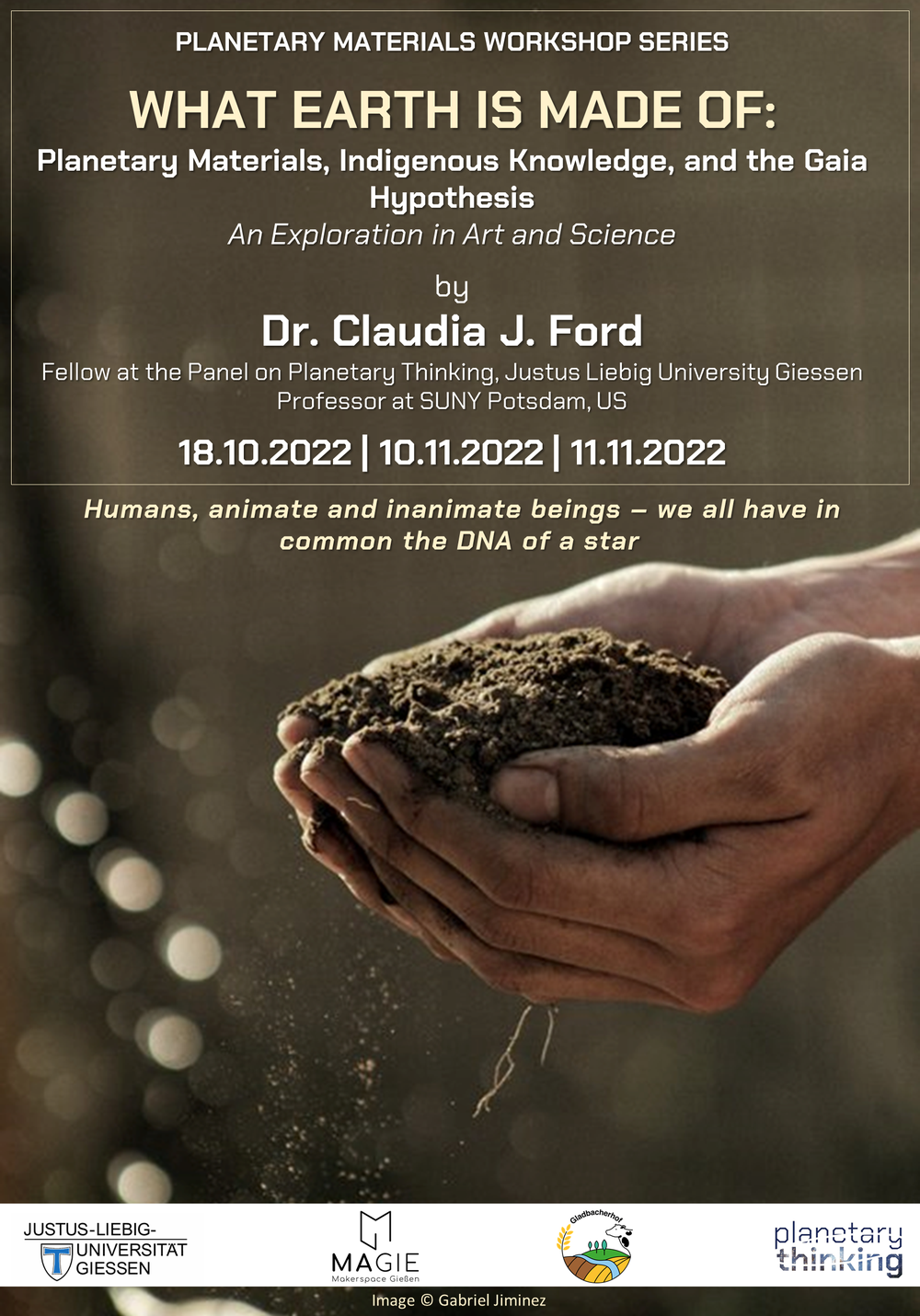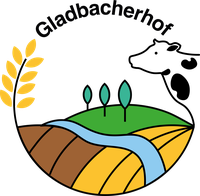What Earth is Made of
The Planetary Workshop Series is an integral part of the Planetary Scholars and Artists in Residence Program. Each semester, the visiting scholars and artists prepare a workshop of one or more days with reference to the Fellowship theme and their own focal points. The thematic orientation as well as the organizational design of the workshop are left entirely to the Fellows, and thus the Planetary Workshop Series features exciting content, creative formats, and unusual perspectives. Here you can find information on all past events of this series.
A video recording of the lecture "Gaia& Indigenous Knowledge" can be found on our Youtube-Channel.
Click here to download a PDF version of the event description. Please note that the event will be held entirely in English. A digital participation via BigBlueButton will be possible for the lecture and the film screening on Thursday, November 10.
|
According to James Lovelock’s Gaia hypothesis (1972), Earth can be conceived as a “self-regulating complex system” or super-organism. If we recognize Earth as ‘Gaia’, ecological connections between humans and the planet become all about being kin, or in relationship with one another. Indigenous ecological knowledge maps onto a cosmology that privileges these kincentric ecological connections. This workshop series reflects on the Gaia hypothesis from an indigenous perspective, to deepen our understanding of planetary materials and their constellations. Understanding the Earth as a cohesive system may help us while trying to create societal responses to environmental challenges. The workshop series What Earth is Made Of connects indigenous knowledge about planetary thinking and planetary materials with the climate crisis. It explores the range of possible shifts in humanity’s environmental knowledge, behaviors and practices. If we think differently about what the Earth is made of, will that help us make necessary changes in our environmental behaviors? How can shifts in perspectives help us move towards more sustainable care for ourselves, each other, and the planet? Exploring these questions through art and science, the four workshops engage participants in storytelling through all of the senses – hands on farm labor, film, creative writing, lectures, listening, dialog and an exhibition of climate change and planetary materials inspired visual art. The arts pay tribute to the methodologies underlying the indigenous knowledge of all peoples, making complex scientific and philosophical topics visible to make them more accessible. The science and art together support the shifts that are needed in our attempts at planetary thinking. |
|
![]()
Tuesday, 18.10.2022 | »Community Farm Day« | Gladbacherhof | 65606 Villmar
|
08:30 09:30 |
| Transport from Giessen Zeughaus | Farm Tour and Volunteer Work |
| 12:30 | | Community Meal »What’s on Your Plate?« prepared by |
|
14:00
|
| Presentations & Discussions: Philipp Weckenbrock, Claudia J. Ford & | Return to Giessen |
Agriculture is at the nexus of environment and culture and farming can be the center of healthy, multispecies connections and relationships. There are cultural concepts of soil; soil as soul; social, ecological and inner soils and an understanding of plants and forests as planetary materials, food, networks, archives, and libraries.
![]()
Thursday, 10.11.2022 | »Gaia & Indigenous Knowledge« | Seminar Room 315 | University Main Building | Ludwigstrasse 23 | 35390 Giessen | online on BigBlueButton
|
14:15 16:15
|
| James Lovelock Memorial Lecture by Claudia J. Ford | Film Screening »Inuit Knowledge & Climate Change« and Q&A | followed by an informal gathering at the Planetary Hub, Liebigstrasse 35 |
There are multiple and different stories about human longing and responsibility in relationship to ‘nature’. What transpires at the intersection between environmental worldviews and Gaia principles given the cultural diversity that drives human society?
![]()
Friday, 11.11.2022 | »Klimatrauer, Gedankenexperiment« | Seminar Room 315 | University Main Building | Ludwigstrasse 23 | 35390 Giessen
|
10:00 13:30 14:30 |
| Writing Workshop | Catered Lunch | Readings & Final Discussion |
Earth’s stories are waiting for us. Can we express our climate grief through our creative arts? The writing workshop will be an opportunity to practice and share creative nonfiction environmental writing using planetary materials as prompts.
![]()
Friday, 11.11.2022 | »Planetary Origin Stories« | MAGIE - MakerSpace | Walltor Str. 57 | 35390 Giessen
|
17:00 17:30 20:00 |
| Exhibit Opening & Reception | Artist’s Talk by Claudia J. Ford | Closing |
Art making and storytelling honor different paradigms of research, knowledge making, and knowledge sharing. The artist’s talk will explain the planetary materials inspiration and studio process behind a visual arts collage exhibit. The artwork will be available for viewing and participation.
Want to be a part of the PLANETARY MATERIALS WORKSHOP?
Registration via panel@planet.uni-giessen.de to individual parts or the entire program
[Please register for the farm tour by October 16th, 2022]
[Please register for the November program by November 3rd, 2022]
|
|
|
|
|---|






